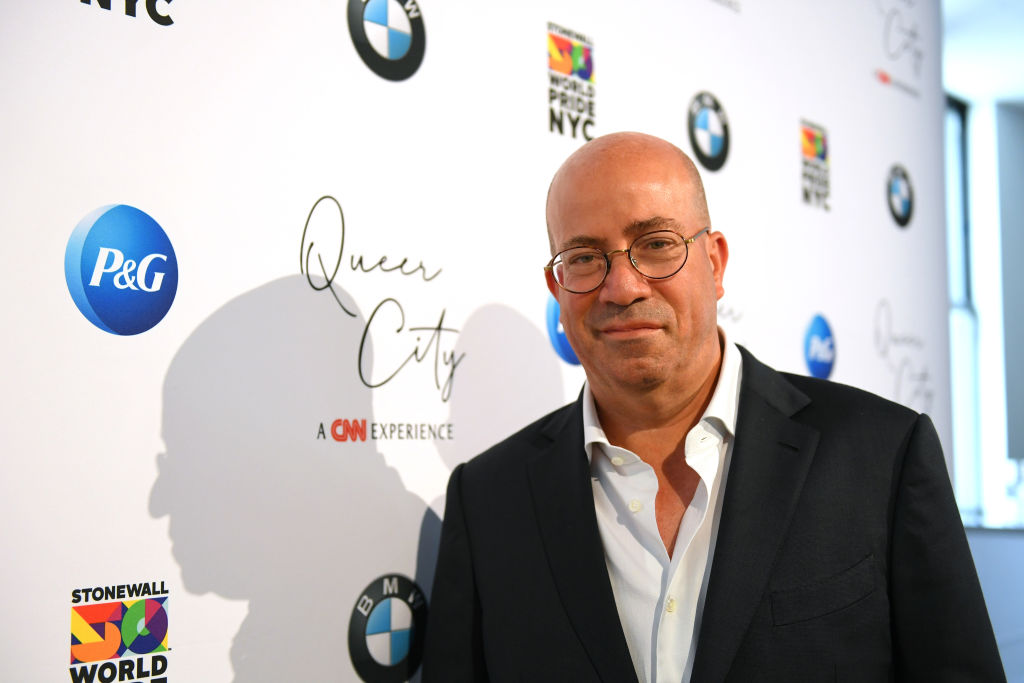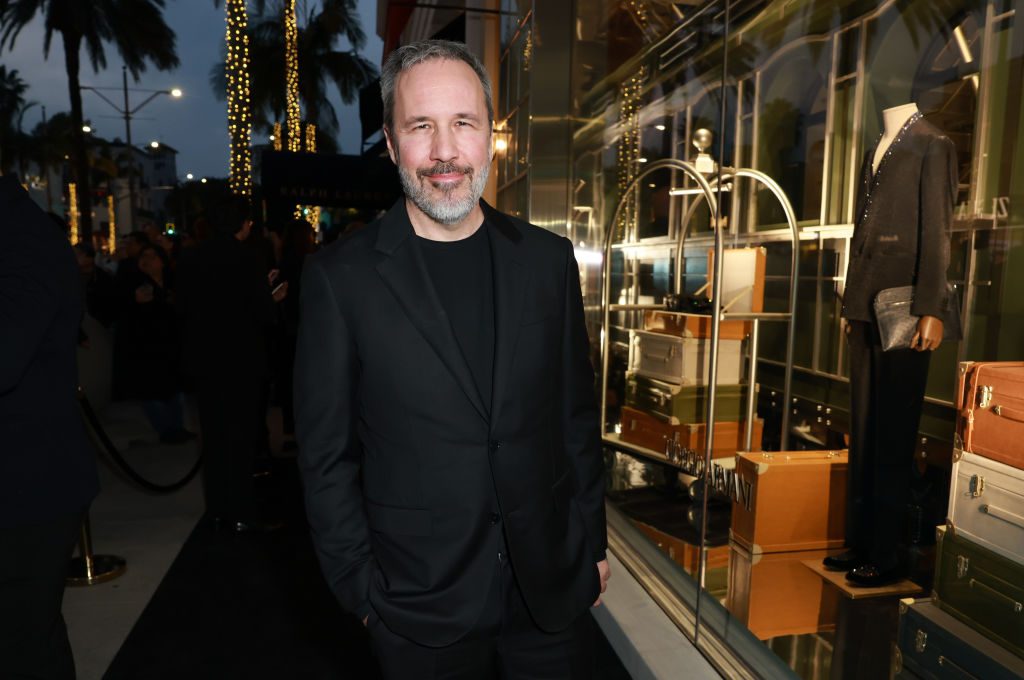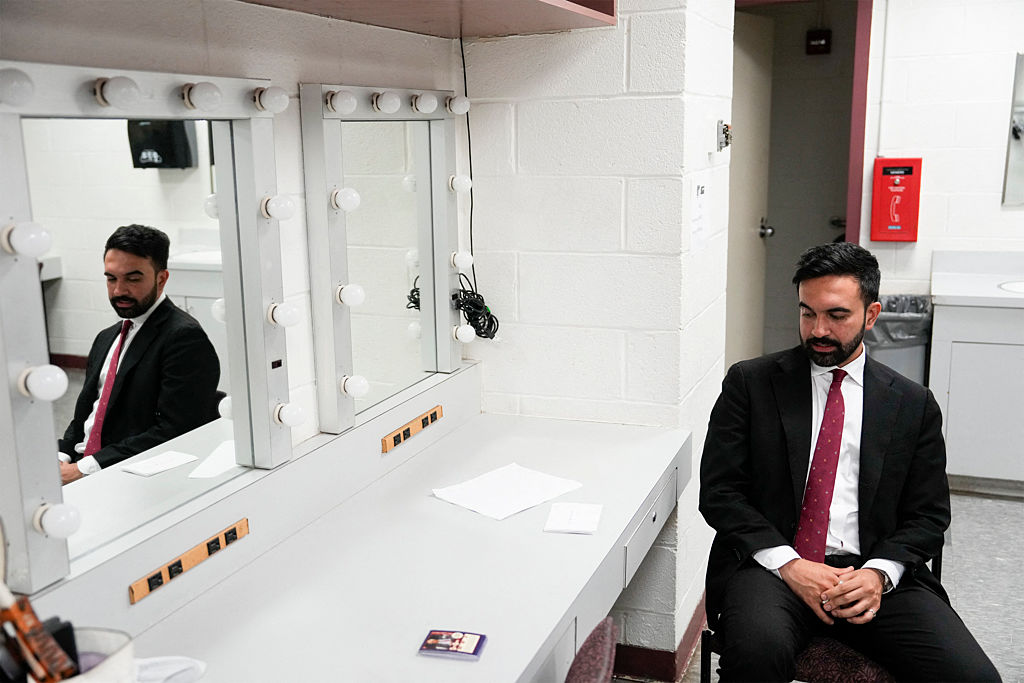Jeff Zucker and the boys in the bubble
“If you aren’t making news, you aren’t governing,” Matt Gaetz, the scandal-plagued Florida congressman, writes in his memoir Firebrand.
As Jay Caruso reports in our February cover story, the ultra-loyal Trumpist and inveterate controversy-seeker grew up in the house used to film The Truman Show. Given that Gaetz embodies the blurring of the lines between reality and fiction, entertainment and politics, performance and action, that biographical detail is almost too good to be true.
But how much of an outlier is Gaetz, really? Most of Washington may turn their noses up at the garishness with which he prioritizes media performance over legislative action — but what the Florida legislator says out loud, everyone else knows is DC’s dirty little secret.
For evidence, look no further than the career of CNN boss Jeff Zucker, who resigned this week after failing to appropriately disclose a relationship with his colleague Allison Gollust. Zucker’s fingerprints are all over the coarsening and trivialization of America’s political media. He journeyed from breakfast TV to reality TV, reignited Donald Trump’s career with The Apprentice, and then to news, where he applied the instincts of a reality TV producer to national politics.
The distinction between observer and participant, the press and the politicians they report on, has never been clear-cut. But these days it is practically non-existent. Behind the immediate circumstances of Zucker’s departure is the sorry saga of the Cuomos. Zucker was asked about his relationship as part of an investigation into the conduct of Chris Cuomo who was fired from CNN after it emerged he had been helping his brother, former New York governor Andrew Cuomo, fight off charges of sexual misconduct.
Rolling Stone reports that the CNN probe into the brothers Cuomo includes evidence of Zucker’s heavy involvement with the New York governor’s handling of the early phase of Covid, when he became a global pandemic star (all the while his team lied and obfuscated about deaths in the state’s care homes). A source tells reporter Tatiana Siegel that “the investigation suggests Zucker and Gollust were advising the governor at the beginning of the Covid pandemic in ways not dissimilar to what led to Chris Cuomo’s dismissal.” The duo, we learn, “provided the governor with talking points” and then booked him as an exclusive CNN guest.
The mirror image of this is the deep links that existed (and presumably still exist) between Fox News stars and former president Donald Trump. Those cozy relationships were revealed in recent evidence collected by the January 6 House investigation. “This is hurting all of us,” Laura Ingraham said in a text to Trump’s chief of staff during the attack on the Capitol, after dispensing advice on how to respond. “Can he make a statement, ask people to leave the Capitol,” suggested Sean Hannity.
The distorted role of media executives is even implicit in the absurd, fantastical fawning over Zucker from CNN talent dismayed that they no longer have the protection of the man who, in many cases, made them stars.
And Vanity Fair reports on a meeting between prominent CNN journalists and Warner Media CEO Jason Kilar: “Toward the end of the meeting… special correspondent Jamie Gangel spoke up. ‘The first calls I got this morning were from four members of the January 6 committee, who felt devastated for our democracy, because Jeff was not going to be around to make sure that CNN is able to do its job,” she said (later clarifying to colleagues that she meant to say four congresspeople, including one member of the committee).”
CNN is not exactly shy about hyping the imminent collapse of democracy, but this behind-closed-doors alarmism about whether the future of the Republic is safe without Zucker in the control seat is quite something.
Meanwhile, the Biden administration is geared towards the reality-TV style of politics that Zucker helped build. In the Eisenhower Executive Office Building, next door to the White House, the Biden team has constructed a simulacrum of the Oval Office, a stage on which the president can do president-y things, only with better lighting and space for the right cameras. Ron Klain, the president’s chief of staff, is all tactics and no strategy, preoccupied by the current news cycle in just the way that Zucker always wanted his viewers to be.
In his 1973 book The Boys on the Bus, Timothy Crouse exposed the dangers of pack journalism. Were that book rewritten today, it might be called The Boys in the Bubble, and it would depict a constructed political reality, in which the media aren’t just too close with the politicians they report on, but sending them pointers from the control room like a Real Housewives producer trying to spice things up for ratings.
Alongside Zucker’s departure, the other media story that dominated headlines this week was the ongoing brouhaha over podcaster Joe Rogan. Contrast the confected reality constructed by Zucker et al with the straightforwardness of Rogan’s show: unedited conversations often lasting several hours with a wide range of guests (some of them cranks, to be sure). Is it any wonder that Rogan (who, incidentally, also got his start in reality), pulls in a far bigger audience than Zucker?
*** Sign up to receive the DC Diary in your inbox on weekdays ***
The propaganda defense
A revealing tactic used more and more by the Biden administration is to cry “disinformation” when a reporter asks a difficult question. It happened twice yesterday. In both cases, the subject matter pertained to important national security issues. And in both cases, the administration deflected by suggesting reporters were buying into the propaganda of a foreign adversary.
Jen Psaki was asked whether the administration would provide any proof that the civilian casualties in this week’s raid on ISIS were the result of a bomb detonated by the ISIS leader. She replied by asking whether reporters really thought that the US was “not providing accurate information and ISIS is providing accurate information.”
In a remarkable exchange with the AP’s Matt Lee over what evidence the administration had for the claim that Russia was concocting a false flag operation as a pretense for an invasion of Ukraine, State Department spokesman Ned Price said: “If you doubt the credibility of the US government, of the British government, of other governments and want to, you know, find solace in information that the Russians are pushing out, that is for you to do.”
Chuck’s Supreme Court slip-up
The US Supreme Court was composed exclusively of white men until 1981, Chuck Schumer claimed in the Senate on Thursday. “Imagine,” he said. Good advice, given that his claim simply isn’t true. The first non-white Supreme Court justice was Thurgood Marshall, of course, who was appointed to the court by LBJ in 1967.
What you should be reading today
Matt Purple: Tom Brady’s transgressive excellence
Grayson Quay: When the fringe becomes the majority
Cindy Yu: Can China escape the zero-Covid trap?
Edward Pinto and Tobias Peter, Wall Street Journal: California’s free-market housing fix
Jemima Kelly, Financial Times: Spotify spat shows why Joe Rogan matters
Kevin T. Dugan, New York: The worst days of Mark Zuckerberg’s reign
Poll watch
President Biden Job Approval
Approve: 41.6 percent
Disapprove: 53.9 percent
Net approval: -12.3 (RCP Average)
The Supreme Court’s Favorability Rating
August 2019: 69 percent
January 2022: 54 percent (USA Today/Suffolk)

























